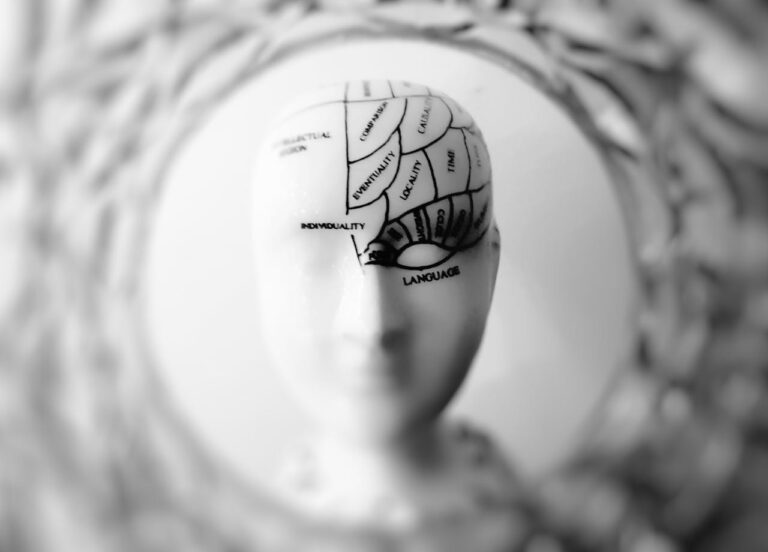What makes us happy? Is it that new car, a promotion at work, or a spontaneous trip to the beach? Or is it something deeper—something wired into our brains, regardless of our circumstances? Happiness has puzzled scientists and philosophers for centuries, but thanks to neuroscience and psychology, we’re gaining fascinating insights into how the brain processes joy.
If you’ve been chasing happiness but feel like it’s slipping through your fingers, you’re not alone and in the right place. This post unpacks the complexities of happiness, explaining what it is, how your brain handles it, what influences it, and some tips grounded in science to help you lead a more joyful life. By the end, you’ll see happiness not as a mystery but as something you can understand and nurture.
The Psychology of Happiness

Happiness means different things to different people, but psychologists often look at it in two ways:
- Hedonic Happiness – This is about pleasure and enjoyment. Think of your joy when biting into your favourite dessert or watching a laugh-out-loud comedy.
- Eudaimonic Happiness – This is the deeper, more meaningful happiness that comes from living in alignment with your values, personal growth, or a sense of purpose.
Research shows that both forms of happiness are important, but eudaimonic happiness has a longer-lasting impact on our overall well-being.
Theories like Martin Seligman’s PERMA model break happiness into five measurable elements:
- Positive emotions (the joy we feel),
- Engagement (being in the flow of an activity),
- Relationships (having meaningful social connections),
- Meaning (finding purpose), and
- Accomplishments (achieving goals).
Essentially, happiness is a mix of factors—not just fleeting emotions but also how we live our lives over the long term. And here’s the kicker: It’s not 100% external. Studies suggest that about 50% of our happiness levels come from genetics, 10% from life circumstances, and 40% from intentional activities and choices. Yes, we have control over nearly half of our happiness!
Understanding the Brain’s Role in Joy
Here’s where things get interesting. Your brain is like the control centre for joy—processing positive experiences, regulating emotions, and influencing how you perceive the world. Scientists have identified key brain regions involved in happiness:
The Happy Players in Your Brain:
- Prefrontal Cortex – Often seen as the “thinking” part of your brain, it processes and plans positive experiences.
- Amygdala – Known for handling emotions like fear, it also reacts to joyful stimuli.
- Ventral Striatum—This area lights up when you experience pleasurable rewards, like eating chocolate or receiving a compliment.
- Hippocampus – Memory plays a huge role in happiness. The hippocampus helps you savour good memories while letting go of bad ones.
The Role of Neurotransmitters:
Ever heard someone call dopamine the “happiness chemical”? While that’s not entirely accurate, dopamine, serotonin, and endorphins all play key roles in our mood. Dopamine is more about motivation and reward (“I am so close to finishing this!”), serotonin contributes to feelings of contentment, and endorphins give you that post-run “high.” Together, they act as the brain’s happiness orchestra.
The brain not only perceives happiness but actively helps create it. When you smile, for example, it triggers feedback loops in your brain that boost positive emotions. Amazing, right? Your brain is hardwired to seek joy.
Factors Affecting Happiness
While your brain and biology set the stage, external factors greatly influence your happiness. Here are three major determinants:
- Environment
Have you noticed how a quiet beach calms you or how messy surroundings stress you out? The environment matters more than we think. Natural settings are particularly beneficial, with studies showing that spending time outdoors reduces cortisol (the stress hormone) and boosts serotonin.
- Psychological Outlook
Your perspective directly affects your ability to experience joy. Pessimism narrows your focus, while optimism can expand your view and make life’s simpler joys more noticeable.
- Daily Lifestyle
Surprisingly, day-to-day habits have a massive impact on your happiness levels:
- Sleep – Sleep-deprived brains struggle with emotional regulation.
- Exercise – Whether it’s dancing, gym time, or a casual walk, moving your body releases endorphins.
- Diet – Foods rich in omega-3s, magnesium, and antioxidants can stabilize your mood.
Practical Tips to Enhance Happiness
The good news is, that happiness isn’t just something you stumble upon—it’s a skill you can develop. Here are some practical, science-backed ways to invite more joy into your life:
1. Practice Gratitude
Keeping a gratitude journal—just listing three things you’re thankful for daily—has been shown to increase happiness by training your brain to focus on the positive.
2. Meditate or Practice Mindfulness
Mindfulness rewires your brain to live in the moment and appreciate simple pleasures. Plus, studies show it decreases stress and promotes emotional resilience.
3. Invest in Relationships
Did you know strong social connections are one of the biggest predictors of long-term happiness? Make time for loved ones, even if it’s just a quick call or coffee date.
4. Move Your Body
No need for a full workout. Even 10 minutes of brisk walking can release mood-boosting endorphins.
5. Engage in Meaningful Activities
Volunteer, create art, or commit to a personal goal. Growth and contribution are powerful pathways to happiness.
6. Limit Overuse of Technology
While apps and social media have their place, too much screen time can dampen happiness by increasing comparison and reducing face-to-face interaction.
Happiness is never one size fits all, but experimenting with these strategies will help you discover a blueprint that works for your unique life.
Make Your Joy Intentional
Happiness is as much a science as it is an art. By understanding how your brain processes joy and taking intentional steps to nurture it, you can unlock a deeper, more fulfilling sense of well-being. It’s less about the fleeting high of hedonic happiness and more about creating a meaningful, balanced life.
But remember—change doesn’t happen overnight. Start small. Pick one of the strategies above and try it this week. Need help staying on track? Surround yourself with a like-minded community, or subscribe to our well-being resources for more tips and guidance.
Happiness isn’t the destination. It’s the path we create every day. What steps will you take toward your joy today?





















0 Comments